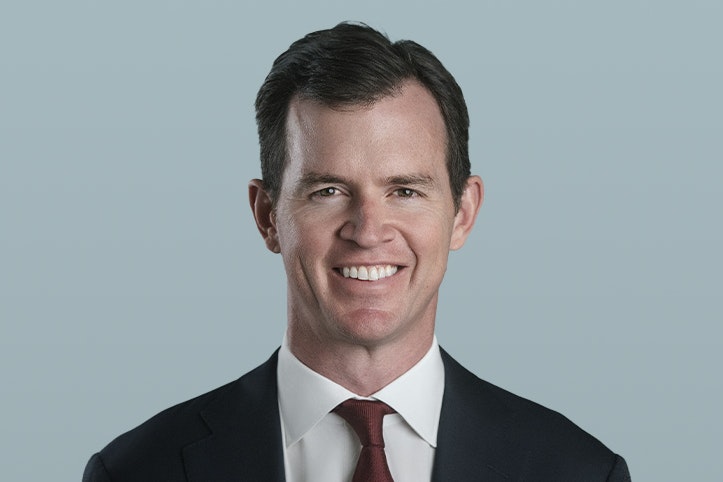Paul assists leading litigators, investors, and corporate decision-makers in gathering critical facts and intelligence and finding hidden evidence and assets in the context of high-stakes and complex disputes, due diligence, and internal investigations.
Prior to founding Quinlan Partners, he spent his career as a journalist reporting both domestically and internationally for a variety of news organizations and publications. His investigations have uncovered fraud, corruption, and malfeasance at the highest levels of business and government. Paul is ranked among Chambers & Partners’ leading practitioners in U.S. Business Intelligence & Investigations and Global Investigative Due Diligence in 2025 and 2024. Clients describe Paul as "a consummate professional: incredibly detailed and responsive," "an excellent private equity transactional investigator," and "obsessive about customer solutions and always offers white-glove service."
A former National Press Foundation fellow, Paul has appeared on CNN and been published by The New York Times, National Journal, USA Today, The St. Petersburg Times, The Miami Herald, The Palm Beach Post, Washingtonian Magazine, Salon, and others.
Education
University of Virginia
B.A. in English, Echols Scholar
Representative Experience
Paul has led deep-dive investigative due diligence and business intelligence engagements on behalf of some of the world's most respected private equity firms in advance of several of the largest-ever leveraged buy-outs and portfolio company acquisitions. Through global public record and open source research and in-depth interviews with primary sources, Paul and his team have helped to identify, mitigate and navigate risks with respect to management, culture, business trends and performance, regulatory and legal matters, and competitive dynamics.
In support of litigation involving high-profile fraud allegations at a major Wall Street investment brokerage, Paul conducted interviews with dozens of witnesses, producing evidence in the form of witness statements and a declaration that provided insight into actions at the highest levels of the company and that drove a highly favorable settlement for the client.
A multinational company’s plan to acquire a public company in which it held a majority stake angered minority shareholders, whose shares were significantly undervalued at the announced acquisition price. At minority shareholders’ direction, Paul and his investigators uncovered conflicts between key board members and the acquirer and took other steps that contributed to the acquirer subsequently raising its price more than 25 percent, transforming the acquisition from one of the lowest-valued to highest-valued of its kind.
On behalf of an institutional investor, Paul investigated allegations that a manufacturing company had given an undisclosed interest to a Mexican government official in violation of the Foreign Corrupt Practices Act. Through interviews with sources, including a key former government official, Paul confirmed the corruption in the major government contract award and identified other instances of bribes paid by the company in other countries.
Paul conducted a due diligence investigation of a transportation company on behalf of an institutional investor that uncovered serious maintenance, safety and performance issues. Paul and his team conducted interviews with more than a dozen former employees who detailed numerous violations, oversights and shortcuts. To further vet the claims, they sourced and analyzed obscure data gathered by the government that revealed the company’s safety and performance record to be quantifiably worse than that of its peers. The team’s findings attracted national media attention when the client went public with the information, ultimately leading the company to dramatically increase investment in its fleet and operations.
Paul and his team have uncovered a wide variety of issues in pre-transactional due diligence investigations that led clients to restructure, renegotiate, or abandon investment plans to avoid potentially significant reputational or financial harm. In many cases, evidence of these issues was hidden in obscure public records or not documented in the public record at all. These include:
- Numerous cases in which subjects for whom databases showed no criminal records were found to have had felony convictions, sometimes hidden by name changes, as well as ties to U.S. and foreign organized crime;
- Numerous cases in which subjects quietly were pushed out of prior employment for wrongdoing or poor performance that was intentionally never documented publicly;
- Cases in which executives were found to have paid bribes or otherwise inappropriately or illegally curried favor with decision-makers to secure business;
- Cases in which target companies were found to have engaged in significantly overstated or even worthless acquisitions of other companies, real estate and other assets to inflate enterprise value or enrich insiders;
- Cases in which executives were found to have engaged in inappropriate sexual relationships or otherwise harassing, inappropriate, or illegal behavior with colleagues or subordinates.
Contributing News & Analysis
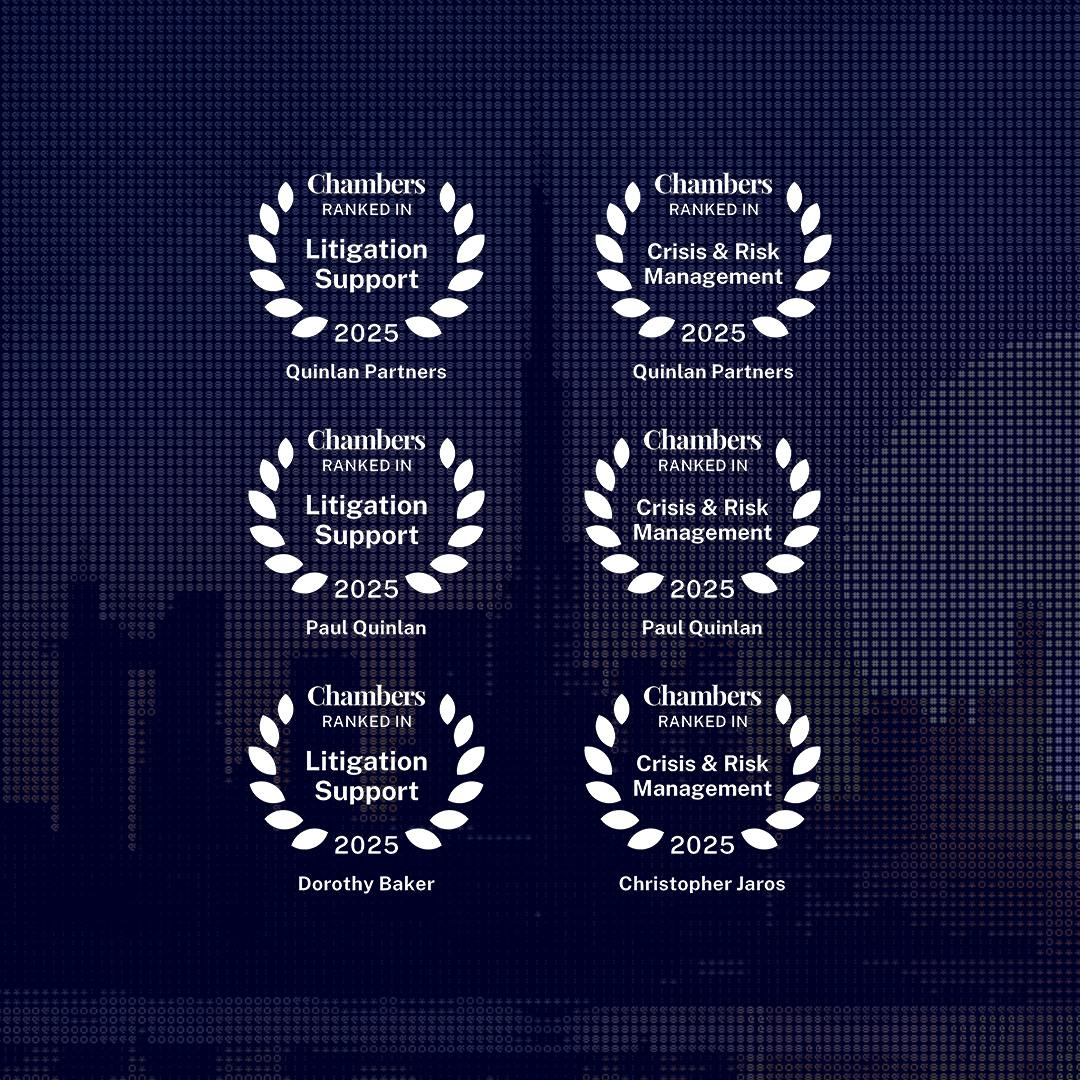
Quinlan Partners Recognized in 2025 Chambers and Partners’ Litigation Support and Crisis and Risk Management Guides
News
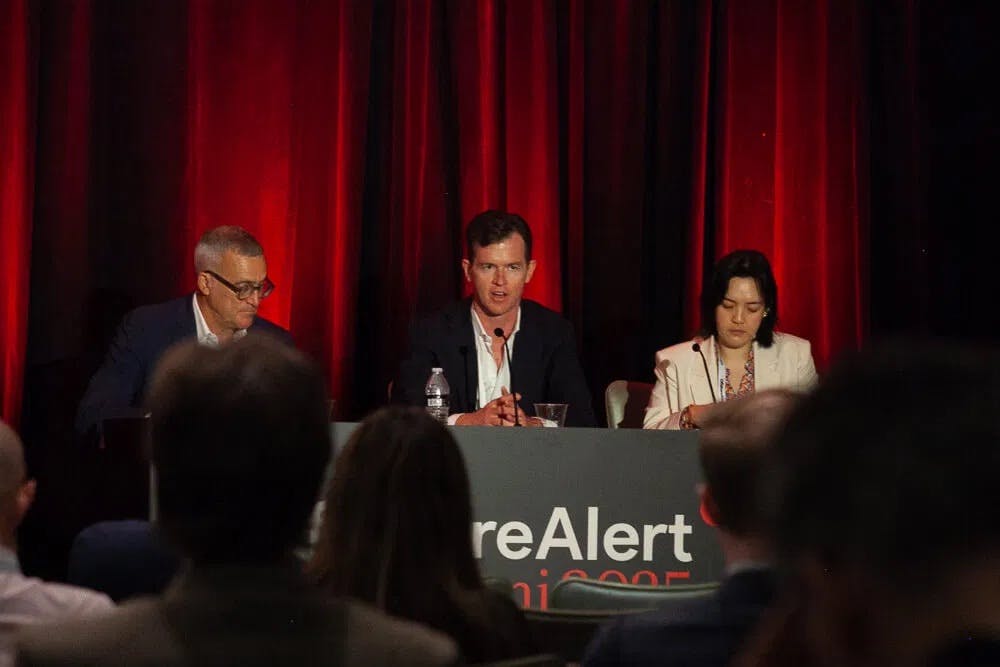
Quinlan Discusses Dispute Support and Asset Tracing at OffshoreAlert‘s Miami Conference on International Investigations and Intelligence
News

Quinlan Partners Returns as Sponsor and Speaker at OffshoreAlert Miami Conference on International Investigations and Intelligence
News
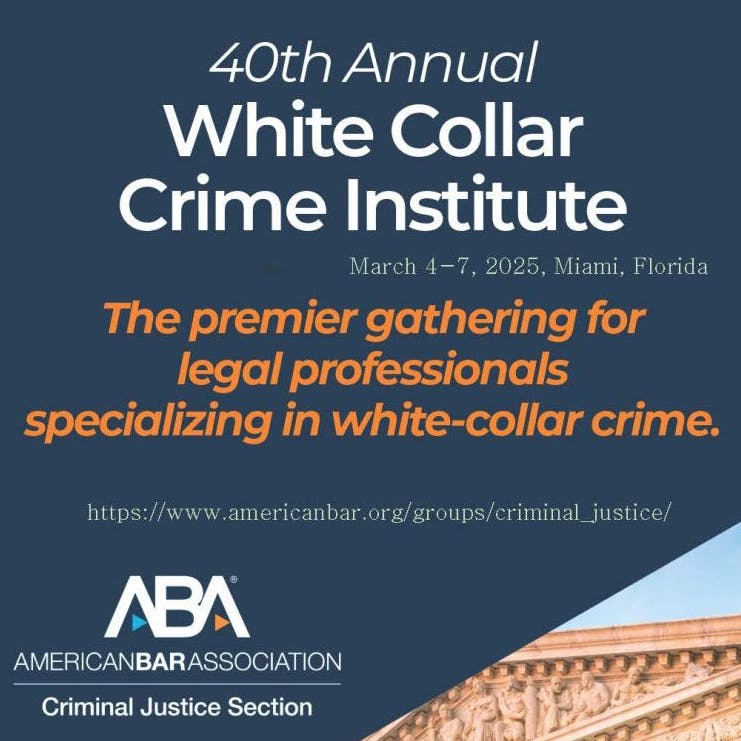
Quinlan, Baker and Hakobjanyan Attend the American Bar Association's 40th National Institute on White Collar Crime
News

Quinlan Partners to Sponsor IBA 2024 Mexico City
News

Paul Quinlan Presents at OffshoreAlert Panel "Using AI & OSINT to Enhance Your Investigations"
News

Paul Quinlan and Dorothy Baker to Attend the American Bar Association's 39th National Institute on White Collar Crime
News

Paul Quinlan to Attend ThoughtLeaders4 FIRE Starters Global Summit: Dublin
News

Here’s how to avoid the next FTX or George Santos
Insights

Quinlan Partners Returns as Sponsor to OffshoreAlert Miami Conference on International Investigations and Intelligence
News

Enjoy the Vista: An Evening Hosted by K&L Gates and Quinlan Partners
News

Paul Quinlan Presents to Investment Analysts on the Investigative Journalism Toolkit
News
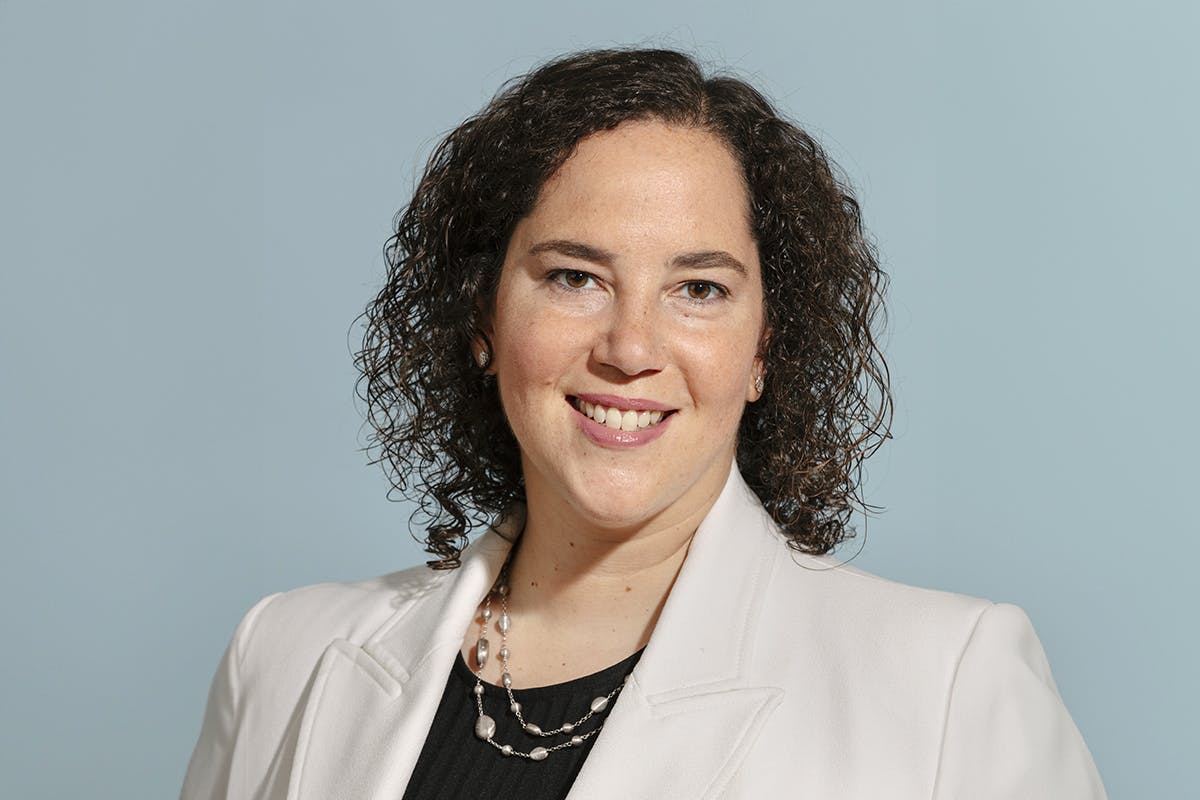
Adina Holzman Joins Quinlan Partners as Associate Managing Director
News
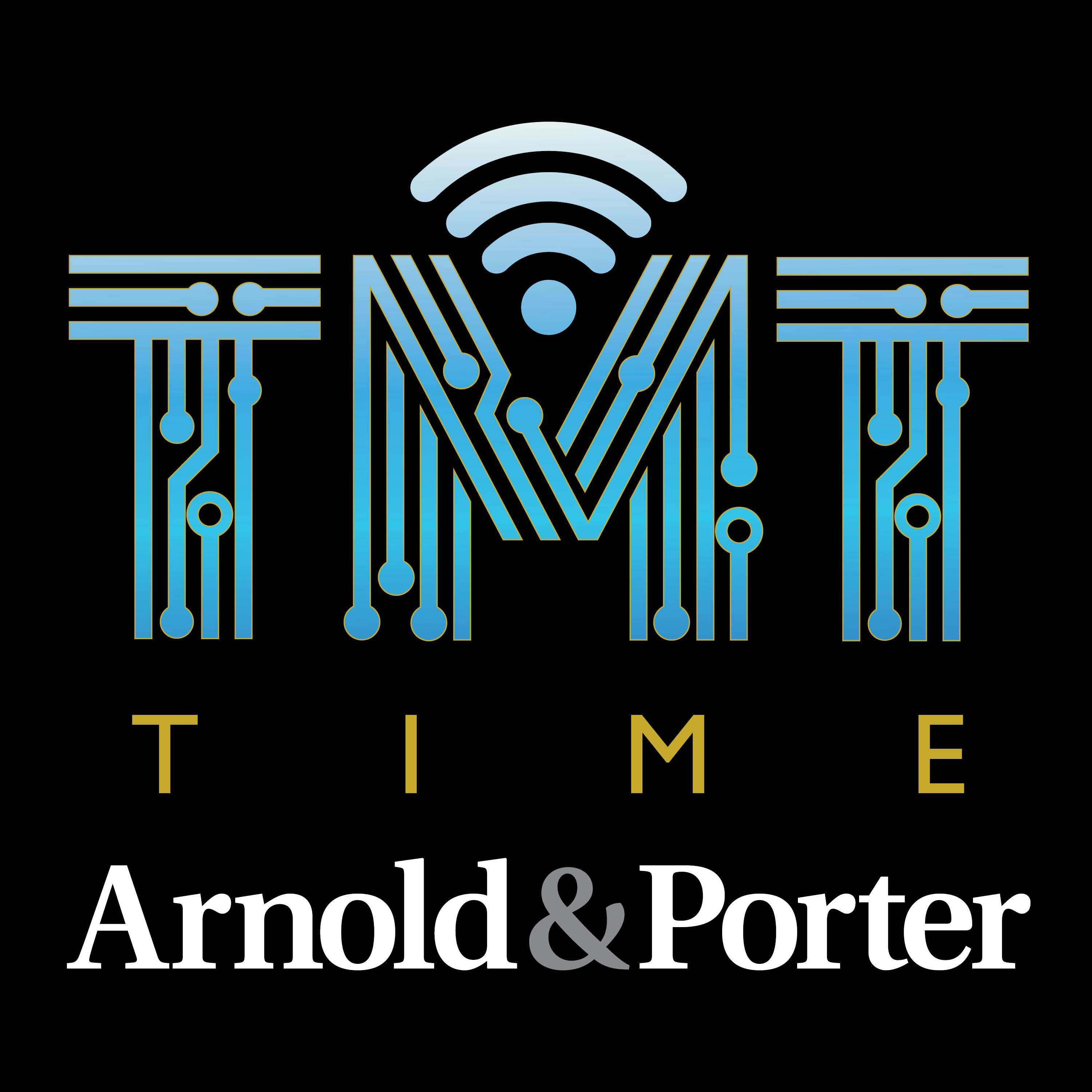
Christopher Jaros Features in Arnold & Porter's TMT Time Podcast
News

